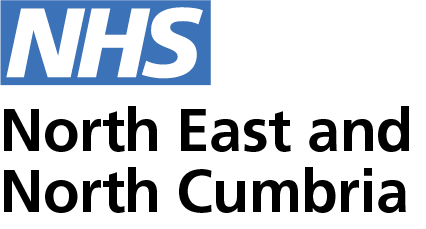Powered by NHS data: Using health data to help babies born early
We are using health records to help care for women and babies who might be born early.
A baby is called preterm if they are born before 37 weeks of pregnancy. Being born early can sometimes cause health problems. If we know which women are more likely to have their baby early, we can give them treatments that help the baby stay healthy.
Special clinics have been set up in hospitals across the North East and North Cumbria. These clinics look after women who might give birth early. They share data from women’s health records (without names or contact details) with the North East and North Cumbria Local Maternity System (NENC LMNS). The NENC LMNS is a team in the NHS.
The data can help us spot patterns and find ways to make care better.
How is health data being used?
Health data is helping to:
- Spot differences in the care people get
- Make care more equal, so everyone gets the same service
- Make it easier for people to get the care they need
- Help babies be born in the best place at the right time
- Make sure the right support is there to help stop problems
Using data to improve care
Midwives and doctors record your maternity data in an electronic system. This system is called BadgerNotes. When we look at lots of people’s records together, we can spot patterns and trends.
This helps us learn what’s working well and what needs to be better. It also helps us decide where to focus care, staff, and resources. This means we can make the biggest difference for mums and babies.
What has been done?
Breastfeeding
Data shows that having breastmilk in their early days helps babies be healthier. We are teaching more families about breastfeeding. We are encouraging them to breastfeed their baby early.
Keeping babies warm
Data shows that keeping babies warm is important. It can be hard to keep newborn babies warm enough. To help with this, hospitals have added heaters to rooms. This helps babies stay at the right temperature.
Smoking
We found that some areas had more people who smoked. Smoking raises the risk of babies being born too early. Teams in those areas have helped people to stop smoking.
Umbilical cord care
The umbilical cord connects you to your baby when it is in the womb. It delivers oxygen and nutrients to help them grow. When they are born, the cord is clamped.
Data shows that waiting a little longer before clamping the cord helps improve a baby’s chance of survival. It lowers the risk of problems like bleeding in the brain. We now wait at least a minute before clamping the cord.
Julia Wood, MatNeoSIP Lead for the North East and North Cumbria, said:
“Data allows us to allocate time and resources more effectively, targeting areas of greatest need.
“Understanding preterm birth data plays a crucial role in reducing the incidence of premature births and providing better support for those born early.
“It is truly a privilege to contribute to this important work.”
Dr Alex Patience, Obstetrician at the Newcastle upon Tyne Hospitals NHS Foundation Trust, said:
“I am incredibly proud of the work our region has done to improve care for women at risk of preterm birth and babies born too soon, ensuring they receive the best possible support and outcomes.
“By prioritising the collection and review of data, we can continually refine our approach, drive meaningful improvements and provide the highest standard of care.
“Data plays a crucial role in raising care standards and ensuring every baby gets the best start possible."
Find out more about how your health and care data is used by the NHS and researchers to improve care.
Note that this project is not using the Secure Data Environment, this case study is to illustrate the benefits of using healthcare data to improve patient care.
